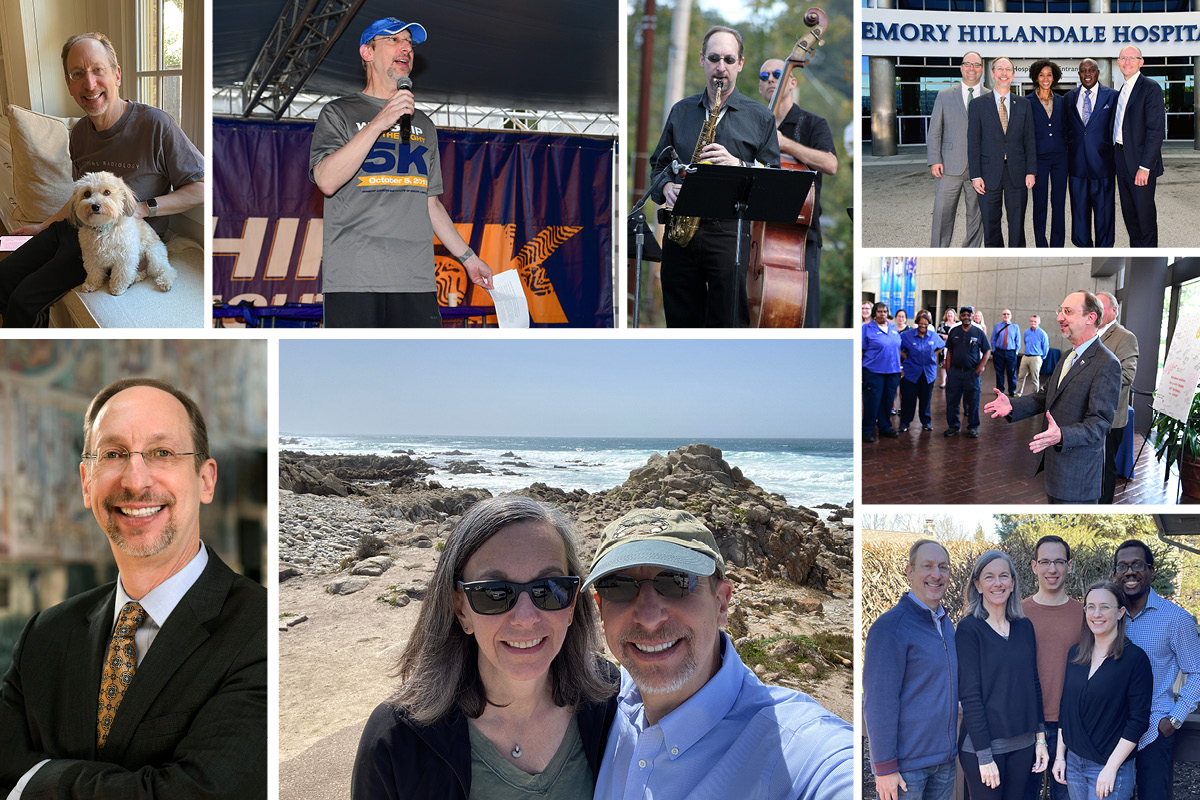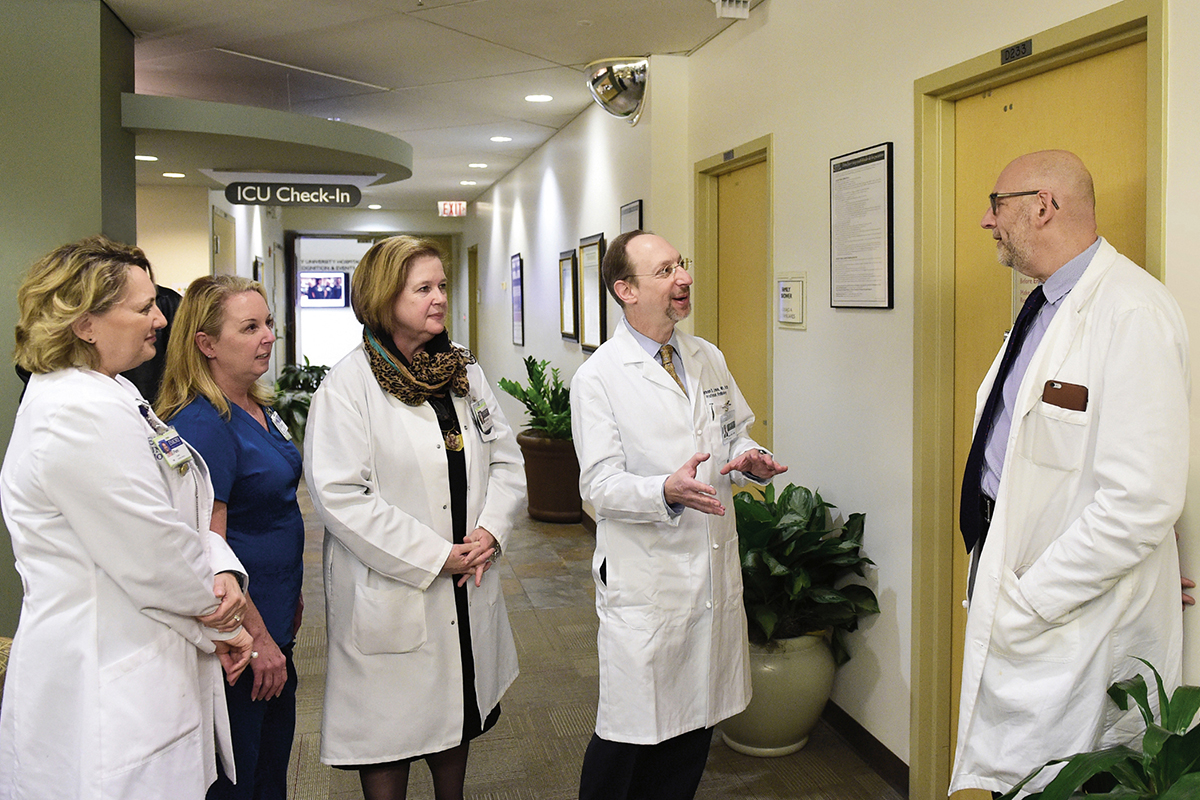An Object Lesson in Leadership

WOULD ANYONE BE SURPRISED TO KNOW THAT JONATHAN LEWIN WAS ON THE JOB BEFORE THE INK ON HIS CONTRACT WAS DRY?
It was 2016, and Lewin was scheduled to start soon as executive vice president for health affairs, executive director of the Woodruff Health Sciences Center, and CEO and chair of Emory Healthcare.
Prior to packing his suitcase, he began developing the Clinical Network Strategy, which ultimately included successes such as the DeKalb Medical acquisition; official health care provider agreements with the Hawks, Falcons, and Braves; the Kaiser Permanente collaboration; partnerships with urgent care providers; and the addition of 53 practice sites.
PRINCIPLED LEADERSHIP

No stranger to balancing the demands of the C-suite in a large health care organization, having served as cochair for strategic planning and senior vice president for integrated health care delivery at Johns Hopkins Medicine, Lewin nonetheless brought a unique style.
“He is mild-mannered, so when he first came on board, there was a question lingering in the air: ‘Will he be able to handle this?’ Jon is very logical. His arguments always have truth behind them,” says his wife, Linda Lewin, Emory professor of pediatrics and co-founder of the Woodruff Health Educators Academy.
Asked about influences, Lewin references his father, a general practitioner in Cleveland who took care of generations of families, making house calls at all hours and charging people what they could pay.
Lewin confesses, though, to having no direct model for his leadership style, noting: “In fact, I had lots of opportunities to get it wrong along the way.”
From Jeffrey Duerk, a former colleague at Case Western Reserve University, Lewin learned about “leading through questions,” which became for him a “powerful way to get things done, because students or colleagues become stakeholders in finding answers and achieving a goal.”
Another decisive lesson came at Johns Hopkins. “I learned to differentiate between when you need consensus and when you just need a decision. It is not a democracy; you are bound to make decisions that will not be uniformly appreciated.”
THE PLAIN DEALER
Lewin proved himself equal parts adept negotiator and honest broker. Major negotiations he helmed include the creation of the Emory + Children’s Pediatric Institute, renewal of the Grady Medical System partnership, and a collaboration with Kaiser Permanente. “We would not,” he stresses, “accept an agreement that was lopsided in our favor or the opposite. We were good-faith partners and built agreements that would stand the test of time.”
COMING THROUGH THE PANDEMIC WITH HEADS HIGH
All of Lewin’s skills were on full display during the pandemic, which he calls an “unequaled experience.” For two to three hours each day, and for seven days a week at the start, Lewin brought his leader- ship group together. Relying on a highly competent executive team, Lewin describes “going to every- one’s strength and concentrating on whatever was truly important at that point in time. We created an incident command structure that was more top-down than our usual leadership style, but it was what we needed.”
Lewin was leading outside Emory as well, losing no time in engaging with his fellow CEOs resulting in a leaders’ group through which Atlanta-area hospitals could coordinate for the benefit of the community.
WHAT NOW?
With Lewin having stepped down after six years, energy equal to when he arrived propels him still.
At home, a pandemic puppy needs training and attention, and he’s eager to resume playing his beloved jazz saxophone with friends. Returning to his roots in education and technology development will trigger options, including training biomedical engineering PhD students, conducting radiology clinical research, and lecturing at Rollins School of Public Health, where he has a secondary appointment in health policy and management. And his allegiance remains with the university. “I want to see where I can have the greatest impact. I am proud to be part of Emory.”
Linda Lewin sees the work of those six years as “both a privilege and burden.” She says, “Jon felt the presence of 34,000 people for each decision he made. That is where his attention should have been. But it made for a crowded dinner table.”
Asked what his greatest contribution was—amid success in research funding, philanthropy, partnerships, revenue, rankings, and leading through the pandemic—there is no pause before he answers.
“Compassion.” He breaks it down. “Never waste the opportunity to authentically make someone feel good.”
Email the Editor








